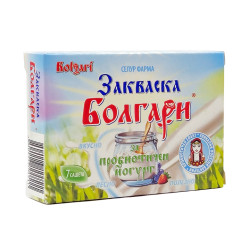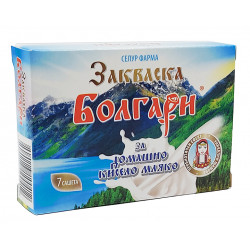History of yoghurt
There is a lack of precise data on the origin of yoghurt. One of the theories of its emergence is associated with the Thracians. Ancient Thrace has fruitful soil, rich vegetation and good pastures. All this has contributed to the development of flowering sheep breeding. Therefore, the main domestic animal of the Thracians was the sheep. The Thracians noticed that the sour milk was kept longer than the fresh milk.
For the first time sour milk is mentioned in the literature in the 8th century under its Old Bulgarian name yoghurt. Genghis Khan used yogurt for food in the army and as a means of preserving the meat. Milk was stored in sheep stomachs. Under the action of the microflora present in the milk, lactic acid fermentation took place, resulting in the yogurt. After they bored, they filled the stomachs again with fresh milk, and the rest of the yoghurt served as a yoghurt starter.
In Western Europe, yoghurt became known thanks to French King Francois I. The king suffered from severe and incurable diarrhea. He prayed for his ally the Ottoman Sultan Suleiman The Magnificent. He sends him a doctor who can heal him with a yoghurt diet. As a sign of gratitude, the French King spread information across Europe about the food that healed.
Ingredients and curative properties of Bulgarian yoghurt
The chemical composition of yoghurt and the changes that have occurred under the action of lactic acid bacteria determine the nutritional value of the product. In the composition, yogurt resembles the freshness of which it is produced, but in many respects it differs from it. The chemical composition of individual types of yoghurt is determined by the type of fresh milk, animal breed, nutrition, applied technology, and more.
Regular intake of Bulgarian yogurt significantly reduces cholesterol in blood serum. Typically, the cholesterol content decreases significantly for 7 days from the start of the yoghurt intake. Yoghurt is a valuable food supplement for diabetics, which should be low in fat to ensure better carbohydrate tolerance. This requires diabetic yogurt to be made from skimmed milk.
The systemic intake of Bulgarian yoghurt is extremely beneficial for the restoration of the biological equilibrium of the intestinal microflora. Its regular consumption helps to create and maintain non-specific immunological reactions in the human body. This is particularly important when taking sterile foods, which is associated with the emergence of some viral diseases, especially hepatitis. In general Bulgarian yoghurt has an immunostimulating effect. Bulgarian yogurt is an effective remedy against diarrhea, constipation and other gastrointestinal diseases. Helps the headache and is particularly known for removing the hangover.





